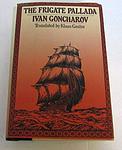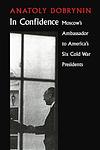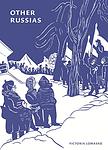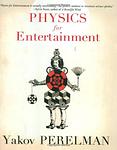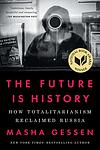The Greatest Russian "Nonfiction" Books of All Time
Click to learn how this list is calculated.
This list represents a comprehensive and trusted collection of the greatest books. Developed through a specialized algorithm, it brings together 300 'best of' book lists to form a definitive guide to the world's most acclaimed books. For those interested in how these books are chosen, additional details can be found on the rankings page.
Genres
Countries
Date Range
Reading Statistics
Click the button below to see how many of these books you've read!
Download
If you're interested in downloading this list as a CSV file for use in a spreadsheet application, you can easily do so by clicking the button below. Please note that to ensure a manageable file size and faster download, the CSV will include details for only the first 500 books.
Download-
26. My Half Century by Anna Akhmatova
"My Half Century" is a reflective anthology that encapsulates the personal and professional life of a prominent Russian poetess through her own writings and letters, as well as critical essays about her work. The collection spans the tumultuous periods of Russian history from the early 20th century through the Stalinist era, providing a window into the poet's profound resilience and adaptation in the face of personal and political upheaval. Her poetry, marked by its emotional depth and lyrical beauty, explores themes of love, grief, and the endurance of the human spirit, while also subtly critiquing the oppressive political climate of her time. This compilation not only celebrates her literary genius but also her role as a witness to a critical period in Russian history.
-
27. The Frigate Pallada by Ivan Goncharov
"The Frigate Pallada" is a travelogue that chronicles the author's experiences aboard the Russian naval ship Pallada during its voyage from Kronstadt to the Far East in the mid-19th century. The narrative provides a detailed account of the places visited, including Japan, which was largely closed to foreigners at the time, as well as the customs and lifestyles of the local populations encountered. The author's keen observations and vivid descriptions offer insights into the colonial ambitions of Russia, the cultural exchanges between East and West, and the personal reflections and adventures that arise from a long sea journey during a period of significant global exploration and imperial expansion.
-
28. A Family Chronicle by Segey Aksakov
"A Family Chronicle" is a nostalgic and vivid portrayal of Russian life in the early 19th century, focusing on the author's own family and childhood. The narrative delves into the customs, traditions, and daily life of the Russian gentry, painting a detailed picture of the era through personal anecdotes and observations. The book is celebrated for its rich descriptions of nature, hunting scenes, and the social fabric of the time, as well as its exploration of the relationships within the author's family, including the bonds between parents, children, and servants. It is a work that combines autobiography with historical insight, offering a window into the soul of Russia during a period of significant change.
-
29. From The Other Shore by Aleksandr Herzen
"From the Other Shore" is a collection of essays and aphorisms that delve into the author's reflections on social and political change during a period of intense upheaval in Europe. Written during the author's exile in the mid-19th century, the work critiques contemporary ideologies and the concept of progress, while exploring the nature of freedom, the plight of the individual in society, and the challenges of revolutionary movements. The author's insights are informed by his own experiences and observations, offering a unique perspective on the revolutionary spirit of the times and the quest for a just society amidst the tumult of historical transformation.
-
30. A Confession by Leo Tolstoy
In this philosophical treatise, the author embarks on a profound existential inquiry, reflecting on the crisis of meaning in his own life. Despite his literary success and social standing, he is plagued by a deep sense of despair and contemplates suicide. Through an intense process of questioning and self-examination, he explores various avenues of thought, including science, philosophy, and the wisdom of the common people. Ultimately, he finds solace in the Christian faith, embracing a spiritual awakening that leads him to a new understanding of life's purpose and a rejection of his previous materialistic and hedonistic lifestyle. The work is a candid exploration of the author's search for truth and the moral and spiritual convictions that result from this quest.
-
31. Autobiography by Maxim Gorky
The book is a powerful and evocative memoir that chronicles the harsh and often brutal life of a Russian writer who rose from poverty to become one of the most celebrated literary figures of his time. It vividly portrays his early years, marked by relentless adversity, including childhood experiences with abusive relatives and his eventual escape into a life of vagrancy, where he encountered a diverse array of characters and harsh realities. Through his journey, the author reflects on the social injustices and the plight of the lower classes in Tsarist Russia, all while developing his own intellectual and political consciousness. His narrative is not only a personal story of survival and self-education but also a window into the societal conditions that would eventually lead to the Russian Revolution.
-
32. The Truth About Chernobyl by Grigory Medvedev
"The Truth About Chernobyl" is a detailed account of the catastrophic 1986 Chernobyl nuclear disaster, written by Grigory Medvedev, a chief engineer at the plant during the 1970s. Drawing from his own experiences and extensive research, Medvedev exposes the series of events leading up to the explosion, the aftermath, and the cover-up by Soviet officials. The book provides an insider’s perspective on the failures in design, management, and operation of the reactor, and criticizes the lack of safety culture in the Soviet nuclear industry. Medvedev’s narrative not only highlights the technical aspects of the disaster but also delves into the human stories of those who lived through the tragedy, offering a poignant look at one of the worst nuclear accidents in history.
-
33. The Diary Of A Gulag Prison Guard 1935 6 by Ivan Chistyakov
"The Diary Of A Gulag Prison Guard 1935-6" is a chilling and harrowing memoir that provides a firsthand account of the atrocities and cruelty witnessed by Ivan Chistyakov during his time as a guard in a Soviet Gulag prison. Through his detailed entries, Chistyakov reveals the dehumanizing conditions, brutal punishments, and constant fear that both prisoners and guards endured within the oppressive Soviet regime. This haunting narrative serves as a stark reminder of the dark realities of the Gulag system and the lasting impact it had on the lives of countless individuals.
-
34. In Confidence by Anatoly Dobrynin
"In Confidence" is a memoir by a former Soviet ambassador that provides an insider's view of Cold War diplomacy from the perspective of the Soviet Union. The book offers detailed accounts of the ambassador's interactions with several U.S. administrations, revealing the complexities of U.S.-Soviet relations and the personal and political challenges of navigating this high-stakes diplomatic landscape. Through his unique vantage point, the author sheds light on major historical events and decisions, offering insights into the strategic thinking and interpersonal dynamics that shaped the Cold War era.
-
35. Other Russias by Victoria Lomasko
"Other Russias" is a powerful and thought-provoking graphic novel that offers an intimate and unfiltered glimpse into the lives of marginalized individuals and communities in contemporary Russia. Through her stunning illustrations and poignant interviews, Victoria Lomasko sheds light on the struggles, hopes, and resilience of diverse groups such as LGBTQ+ activists, migrant workers, political dissidents, and the forgotten voices of rural communities. This eye-opening book challenges stereotypes and provides a humanizing portrayal of those who are often overlooked or silenced in Russian society.
-
36. In the Land of White Death by Valerian Albanov
This book is a gripping first-person account of a Russian navigator's survival journey in the Arctic wilderness. After his ship gets trapped in pack ice, the protagonist and his crew embark on a grueling trek across the frozen landscape, battling extreme weather, starvation, and despair. The narrative provides a vivid depiction of the harsh Arctic environment and human resilience in the face of adversity.
-
37. Hope Against Hope by Nadezhda Mandelstam
"Hope Against Hope" is a poignant memoir that recounts the harrowing experiences of the author during the Stalinist purges in Soviet Russia. The narrative centers around her life with her husband, an acclaimed poet, who was arrested for his alleged counter-revolutionary activities. Through her detailed and emotional account, the author exposes the brutal realities of Soviet political repression and the resilience of the human spirit. Her story is not only a personal tale of survival and loss but also a powerful testament to the endurance of love and intellectual integrity under the most oppressive conditions.
-
38. Black On White by M. Ilin
"Black on White" is an engaging exploration of the history and significance of paper, tracing its development from ancient times to the modern era. The book delves into the various ways paper has been made and used across different cultures, highlighting its role in the advancement of literacy, art, and communication. Through a rich narrative, the reader gains an appreciation for paper's profound impact on society and its continuing relevance in a digital age, making it a compelling read for anyone interested in the intersections of history, technology, and culture.
-
39. Physics For Entertainment by Yakov Perelman
"Physics for Entertainment" is a captivating book that presents complex physics concepts in an engaging and accessible manner. Aimed at both young readers and adults, the book uses everyday scenarios and simple experiments that can be performed at home to explain the principles of physics. Covering a wide range of topics from mechanics to optics, the author demystifies scientific phenomena and encourages a deeper understanding of the world around us through playful yet educational explorations. This work not only educates but also entertains, sparking curiosity and a lasting interest in the field of physics.
-
40. The Future Is History: How Totalitarianism Reclaimed Russia by Masha Gessen
This book provides a deeply researched examination of the resurgence of totalitarianism in Russia, focusing on the lives of four individuals born at what promised to be the dawn of democracy. The book explores how, after the fall of the Soviet Union, instead of moving towards a democratic society, Russia has seen a rise in a new form of totalitarianism under its current leadership. It delves into the psychological shift in the Russian populace, the government's use of homophobia as a method of control, and how the internet and social media have been weaponized for political purposes.
Reading Statistics
Click the button below to see how many of these books you've read!
Download
If you're interested in downloading this list as a CSV file for use in a spreadsheet application, you can easily do so by clicking the button below. Please note that to ensure a manageable file size and faster download, the CSV will include details for only the first 500 books.
Download
